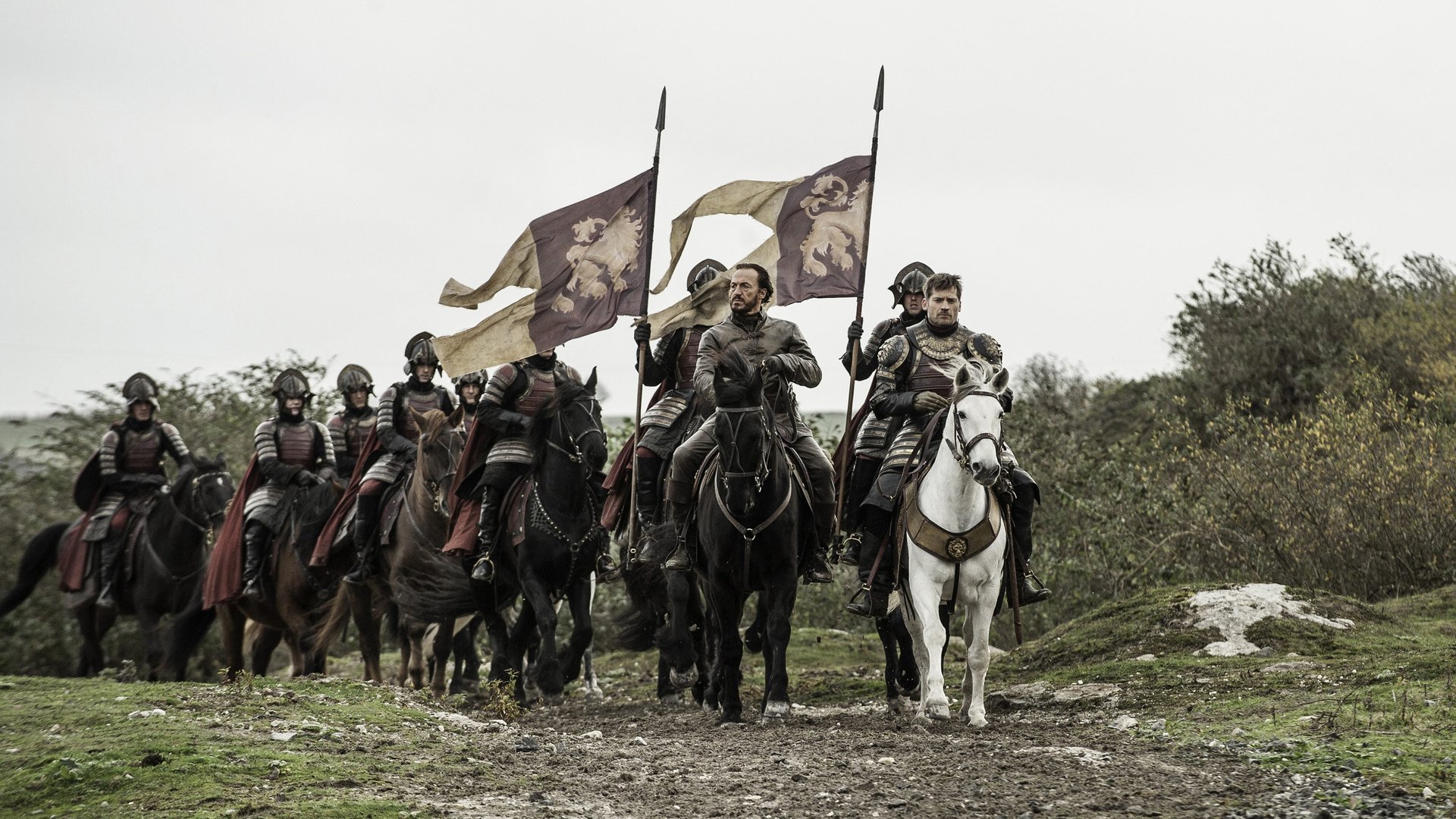Is “Game of Thrones” a better TV show now that it’s moved past the books?
We may never see another TV show quite like Game of Thrones.


We may never see another TV show quite like Game of Thrones.
It depicts a supernatural world, but is based in part on real medieval history. Its scope—both the complexity of the story and the vast undertaking of its production—is unprecedented for television. And it has turned a niche, nerdy genre into an ultra marketable, widely consumed, zeitgeist-tapping part of popular culture.
But most of all, Game of Thrones is strange because for five years, it existed in near-synchronicity with the ongoing book series from which it drew stories, and, now, it has moved past those books into a story of its own making.
From a TV-making standpoint, is this a good thing? Is Game of Thrones better off now that it’s no longer tied to George R.R. Martin’s novels?
The majority of TV critics say yes.
It’s true that the show had already diverged from the books in minor ways in previous seasons, and that Martin has informed the showrunners David Benioff and Dan Weiss of where he intends to ultimately take his series. A few twists (spoiler alert!) like Hodor’s tragic fate, were divulged in advance to the HBO duo.
But, in general, this most recent season, which culminated in Sunday’s fantastic finale, was the first time the show could really blaze a path for itself—and it’s pushing forward much more quickly than Martin is with the books.
New York Times TV critic James Poniewozik, who called this season the show’s “most flat-out entertaining” season, appreciated its quickened pace:
After years of holding actions, this season moved like wildfire — literally in King’s Landing, where Cersei Lannister (Lena Headey) made an incendiary decapitation strike on her rivals. Winterfell’s long nightmare under Ramsay Bolton (Iwan Rheon) came to an end. Daenerys Targaryen (Emilia Clarke) finally got the hell out of that pyramid.
The series also picked up the tempo scene by scene. It once took its time patiently moving Character A to Point B; now it just slam-cut them across continents. Time behaved according to the laws of TV relativity; Sam took a full season to get to Oldtown, while Varys made it to Dorne and back before you could make and eat a sandwich.
The Atlantic’s Christopher Orr agreed, crediting the show for developing real momentum while Martin’s books have unfolded gingerly:
In place of Martin’s aimless wanderings, we get Benioff and Weiss’s reckless velocity. Say what you will about this season’s flaws—and obviously I have, at length—it moved. More than any season in a while (arguably more than any season, period) there has been an overwhelming sense of momentum from episode to episode. Whereas Martin seems farther from concluding his story after five books than he did after three, it’s clear that Benioff and Weiss are heading into the home stretch, with just two more, abbreviated seasons of the show planned.
Other critics have said similar things about the show’s renewed energy. But that’s come at a cost.
Orr wrote that, without Martin’s guiding hand, the show has become “more careless in its plotting and motivation, hinging on major developments that are inadequately set up or explained, tending to favor dramatic shock over internal logic.”
“The stuff between those big, powerful moments feels more hand-wavy than it has in the past, as if everyone involved is saying, ‘I guess some stuff happens then, and eventually Arya stabs Walder Frey,'” wrote Vox critic Todd VanDerWerff. ”The stabbing will be well done. The other stuff will feel like a leftover subplot from an earlier outline.”
Indeed, Arya exacting her revenge on Walder Frey seems like one of these shock moments that the show always intended to hit, but had trouble reaching convincingly. “[The murder] seemed all payoff with almost no meaningful buildup,” Orr wrote.
Arya spent what amounted to a seasons-long training montage with the Faceless Men in Braavos, which, in retrospect, feels like a stall move, meant solely to allow Arya to develop the assassin skills she needed to kill those responsible for her mother and brother’s deaths.
Not every critic feels the same. “There were as many momentous events in this season as in any two others combined, but in contrast to similarly busy TV dramas like Empire, a bag of exclamation points in the form of a show, it never felt as if Game of Thrones was burning through plot just to get a rise out of fans,” wrote New York Magazine’s Matt Zoller Seitz. “Every ‘Wow!’ moment had been carefully prepared for in seasons past.”
In an interview with Deadline, Weiss mentioned that even as the show diverged slightly from the books in the earlier seasons, the writers still had “big set piece scenes…these great moments to count on,” from Martin’s books that they knew to include in the show. The writers don’t have those moments to anchor the show to anymore. For the most part, they have to come up with these moments themselves.
Whether or not the show did its due diligence to reach them, it’s clear that these moments have been wonderful, and exciting, and beautifully filmed. Last week’s finale may have moved the story further along than the entirety of the two seasons prior. With the show reportedly ending after a mere 13 additional episodes, that’s a smart and necessary development.
But those looking for more deep dives into the inner workings of each character, or painstakingly plotted story lines that connect each powerful, buzz-worthy scene, may find themselves disappointed by the conclusion of Game of Thrones.